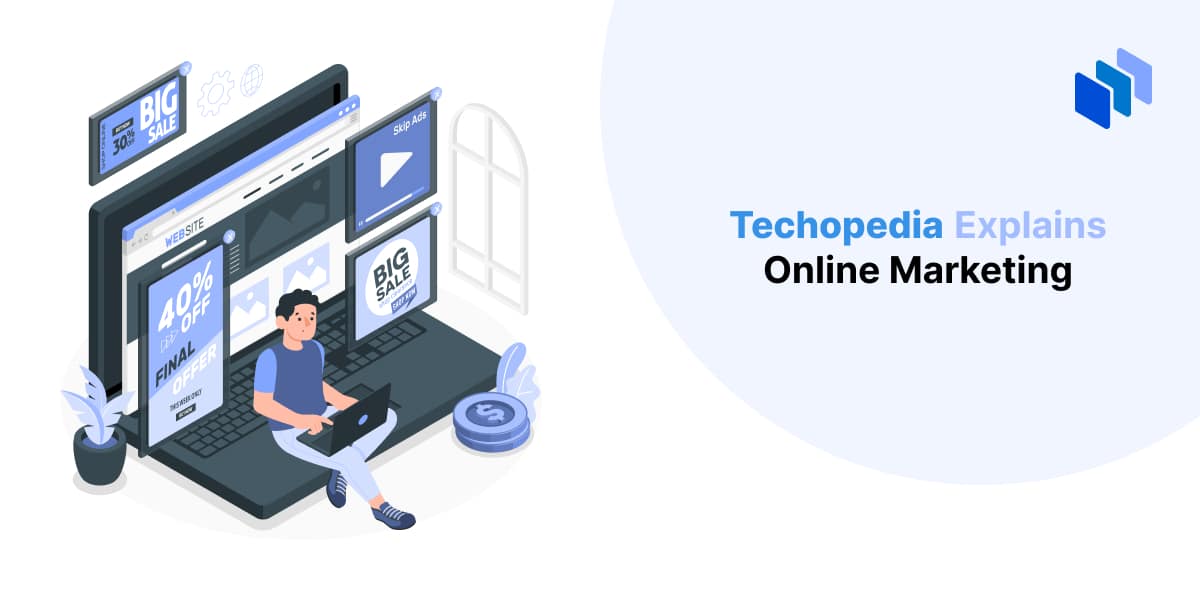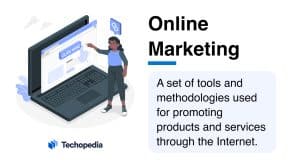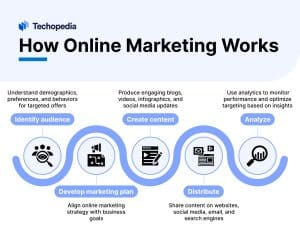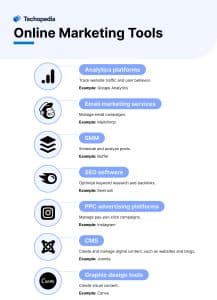What is Online Marketing?
The definition of online marketing is the use of tools and methodologies to promote products, services, or brands through the Internet. Also known as Internet marketing or digital marketing, it allows businesses to connect with potential customers through electronic devices. In this way, they can reach a wider audience and raise brand awareness more effectively than with traditional marketing methods.
Online marketing takes business development to a much higher level than traditional marketing because of the extra channels and marketing mechanisms available on the Internet.
Effective online marketing programs use consumer data and customer relationship management (CRM) systems to determine which methods and content will drive the most sales
Key Takeaways
- Online marketing allows businesses to reach a global audience, overcoming geographical barriers.
- Online marketing can often be more affordable than traditional marketing methods and offer a higher return on investment (ROI).
- Online marketing enables precise targeting based on demographics, interests, and behaviors, ensuring that marketing efforts are directed at the right audience.
- With various analytics tools, businesses can track the performance of their online marketing campaigns in real time and adjust strategies as needed.
- Businesses can engage and interact with customers directly through social media, email, and other digital channels, fostering stronger relationships and customer loyalty.
How Online Marketing Works
Online marketing uses digital platforms to create, distribute, and measure the impact of content. Many platforms allow for scalable ads with different levels of reach that are proportioned to the business’ advertising budget. This allows smaller companies to still increase their reach.
The process typically involves:
- Identifying the target audience and understanding customer demographics, preferences, and behaviors. This allows businesses to create specific offers that are shown only to certain demographics.
- Developing a comprehensive online marketing plan that aligns with business goals and objectives.
- Producing engaging content that appeals to the target audience, such as blog posts, videos, infographics, and social media updates.
- Distributing the content across various digital channels, including websites, social media, email newsletters, and search engines.
- Using analytics tools to monitor the performance of campaigns and making data-driven decisions to optimize results. Businesses can improve their targeting over time as they gain a clearer understanding of their customer base.
Using analytics tools to monitor the performance of campaigns and making data-driven decisions to optimize results. Businesses can improve their targeting over time as they gain a clearer understanding of their customer base.
Types of Online Marketing
There are several different types of online marketing, each with unique approaches and benefits:
Online Marketing Tools
Effective online marketing relies on a variety of tools to plan, execute, and measure campaigns:
- Analytics platforms for tracking and analyzing website traffic, user behavior, and campaign performance, such as Google Analytics.
- Email marketing services for creating, managing, and sending email campaigns, such as Mailchimp.
- Social media management applications for scheduling, monitoring, and analyzing posts and engagement.
- SEO software for keyword research, backlink analysis, and on-page SEO optimization.
- PPC advertising platforms: Services for managing pay-per-click ad campaigns on search engines and social media.
- Content management systems (CMS) for creating and managing digital content, such as websites and blogs.
- Graphic design tools for creating visual content like graphics, infographics, and social media posts, such as Canva.
Online Marketing Examples
Successful online marketing campaigns help businesses enhance their digital presence and increase sales. For example:
Nike excels in using social media platforms to engage with its audience through motivational content, sports and exercise apps, athlete endorsements, and user-generated content.
Coca-Cola’s “Share a Coke” campaign personalized drinks bottles with names, encouraging customers to share their experiences on social media.
Airbnb collaborates with travel influencers to showcase unique stays and experiences, increasing its audience reach.
Online Marketing Pros and Cons
Pros
- Growth potential
- Multiple options
- Lower expenses
- Direct communication
- Analytics
- Improved customer service
- Competitive advantage
- Better control
- Demographic targeting
Cons
- Competition
- Constant monitoring
- Negative feedback
- Privacy concerns
- Security risks
- Ad blockers
- Oversaturation
- Dependence on technology
- Short attention spans
The Bottom Line
The meaning of online marketing encompasses a broad range of strategies and techniques used to promote products, services, or brands via digital channels. It offers numerous advantages, such as a wider reach, cost-effectiveness, targeted advertising, and measurable results.
However, businesses should also be aware of challenges such as high competition, cybersecurity, and privacy concerns. By leveraging the right tools and staying up to date with industry trends, businesses can effectively achieve their marketing goals.









